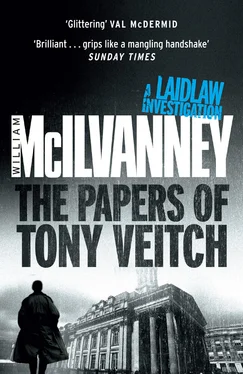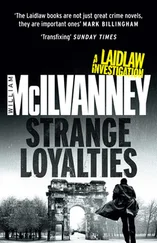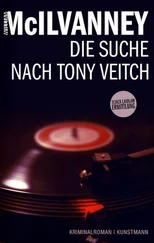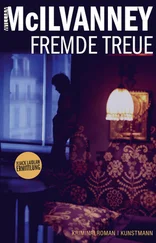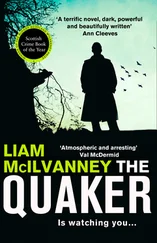William McIlvanney - The Papers of Tony Veitch
Здесь есть возможность читать онлайн «William McIlvanney - The Papers of Tony Veitch» весь текст электронной книги совершенно бесплатно (целиком полную версию без сокращений). В некоторых случаях можно слушать аудио, скачать через торрент в формате fb2 и присутствует краткое содержание. Год выпуска: 0101, Издательство: Canongate Books, Жанр: Полицейский детектив, на английском языке. Описание произведения, (предисловие) а так же отзывы посетителей доступны на портале библиотеки ЛибКат.
- Название:The Papers of Tony Veitch
- Автор:
- Издательство:Canongate Books
- Жанр:
- Год:0101
- ISBN:нет данных
- Рейтинг книги:3 / 5. Голосов: 1
-
Избранное:Добавить в избранное
- Отзывы:
-
Ваша оценка:
- 60
- 1
- 2
- 3
- 4
- 5
The Papers of Tony Veitch: краткое содержание, описание и аннотация
Предлагаем к чтению аннотацию, описание, краткое содержание или предисловие (зависит от того, что написал сам автор книги «The Papers of Tony Veitch»). Если вы не нашли необходимую информацию о книге — напишите в комментариях, мы постараемся отыскать её.
The Papers of Tony Veitch — читать онлайн бесплатно полную книгу (весь текст) целиком
Ниже представлен текст книги, разбитый по страницам. Система сохранения места последней прочитанной страницы, позволяет с удобством читать онлайн бесплатно книгу «The Papers of Tony Veitch», без необходимости каждый раз заново искать на чём Вы остановились. Поставьте закладку, и сможете в любой момент перейти на страницу, на которой закончили чтение.
Интервал:
Закладка:
‘Always do the unexpected,’ Mickey said and winked at Malkie.
He was already on his way out when Macey spoke.
‘Be seein’ you, Mickey,’ he said.
‘Aye.’ Mickey didn’t look back. ‘If you’ve got the Jodrell Bank telescope, ye might.’
The driver put Mickey’s case in the luggage compartment and Mickey got in the back. Before they could pull away, Simpsy had run across to them and tried to open the offside door of the cab. It wouldn’t open.
‘That door’s buggered, pal,’ the driver said.
Simpsy contented himself with waving and mouthing something and Mickey didn’t bother to wave back.
‘Edinburgh road,’ the driver said through the opened glass panel. ‘We better take the Kingston Bridge.’
In the back, Mickey was taking an unemotional farewell of Glasgow as they came off the sliproad and headed up to the Kingston Bridge. The lights of the city around him evoked no nostalgia. He was neutrally picking out areas that he knew when the driver braked suddenly. A car, which had overtaken them, was pulled up at the parapet of the Bridge, hazard lights flashing.
‘The mug canny stop there,’ the driver said.
‘Neither can we,’ Mickey said. ‘Shift!’
‘Ah’ll just see whit the problem is,’ the driver was saying and jumped out.
In that moment Mickey knew. In the pretence of the taxi-driver the whole treachery crystallised. His own past violence was like a prompter in his head. His life might have been a rehearsal for this moment, he saw it so clearly, how the other car would pull up behind them. When it did, he tried to open the offside door of the cab to give himself space. It wouldn’t budge. In here he had no chance.
He kicked open the other door and dived out, pulling out the knife as he emerged. The open door was less a shield than a weapon against him. He shut it with his body, backing against it.
In the whipping wind above the bleak lights of the city he found the small space he was left with. The cars were parked tight, the taxi further out into the motorway than the others. To his right, Cam Colvin was waiting with two others. To the left there was John Rhodes with one hander.
Mickey dived to his left. He feinted at Rhodes’ companion and, as the man moved back, swung at Rhodes who had started to come in. He struck Rhodes’ left arm, but with his right hand Rhodes caught the back of Mickey’s head and rammed his face against the concrete of the parapet. Mickey tried to struggle through the blood but already knew himself beaten. In an instant his long-nurtured sense of himself dissipated like a dream.
Knowing himself about to die and, fighting against the nausea of unconsciousness, his thoughts weren’t of regret or fears for family but of the bitter images of his failure to be harder, of Macey looking innocent, the taxi-driver jumping out, Simpsy mouthing through the glass of the window, ‘Cheerio, Big Man.’ He had a flash of Cam’s face, cold as a talking statue, saying, ‘You didn’t take this place serious enough,’ before he was hoisted on to the parapet and fell.
The sound of the body striking ground was so faint as to seem imagined. The banker’s card, fallen from his pocket when he pulled the knife, spun in the exhausts of the leaving cars like a plastic leaf.
39
It was half-past one in the morning and it was raining. Gus and Laidlaw were standing near the end of the queue for taxis outside Central Station. It seemed a suitable ending to an evening that had turned into a belated wake for Tony Veitch.
They had improvised their way from pub to pub, disgorging opinions, feelings, odd confessions as they went. In the Wee Mann’s Laidlaw had worked out that the answer to one of Tony’s riddles was the pyramids. In the Virginian Gus had explained that the answer to the other was Tony himself. In Charlie Parker’s, chosen by Gus in the mood of a belligerent fifth-columnist, Laidlaw claimed to see the point of the riddles.
‘Eats an egg and tastes feathers,’ he said. ‘Is everybody else’s pupil,’ he said. ‘The bones of the many housing the bones of the few,’ he said. ‘Individual sensitivity,’ he said, ‘and the need for ordinary lives to be seen as the most important things in society. Maybe that’s what the papers were trying to say. Maybe the papers are what we should be trying to live with our lives.’
In the Corn Exchange Gus cried a little, quietly, and Laidlaw struggled not to join him. They had attacked the city as if they meant to drink it dry, finishing up in Ad Lib after one in the morning, toying with hamburgers and slaughtering the house red. Now in that complicated drunken way, they had worked out that Gus was going to take a taxi to his flat, where Marie presumably thought he had emigrated, and Laidlaw would share it with him as far as the Burleigh Hotel.
‘Well,’ Gus said, wrapping the thought round him like the coat neither of them had. ‘Not be long now. There’s no place like home.’
‘That’s right,’ Laidlaw said. ‘Not even home.’
He didn’t bother explaining his cryptic wisdom.
He couldn’t have faced articulating the irony against which his marriage had finally foundered, how Gina had kept the envelope on which he had written the phone-number for her, containing his address, had looked up his number and phoned the house several times, asking for him. Ena’s misunderstanding was nevertheless an accurate measurement of what had happened to them and they both knew it. They had agreed he had better move out. The thought of the possible effects on the children was like a future of endless guilt. The memory of the family he had come from made him feel he had betrayed his own past. The decision proliferated into a warren of problems in his mind. Tonight had been like an unsuccessful attempt to postpone them.
But bleak as his moment was, the city wouldn’t leave him alone. Looking around him, he felt that maybe this was as near to home as he was going to get, the streets of this place. The queue was about the size of a small football crowd and in the smirring rain it should have been a formula for misery. But the place was jumping joyously.
A small man was passing along the line, playing a mouth-organ and collecting money. He appeared to have found the instrument because he didn’t once deviate into a tune. He just made watery clusters of sound. When somebody asked for a request, he said, ‘Away tae hell. Ah don’t play tunes.’
Reaching into his pocket to reward impertinence, Laidlaw took out a handful of coins, selected a couple and remarked philosophically to Gus, ‘Notice that, when you’re on the batter? Finish up with pockets like a street-bookie. See, you always buy with notes. Coins are beneath you. You become a whisky-millionaire.’
The man was earning his money. His jaunty noise was the drunken pulse of the group. People were laughing and shouting, vivid rain-streaked faces and loud voices, a queue by Hogarth. A group of women had emerged to dance like maenads around the small man. The whole line was a weird, dynamic unity, like a centipede on LSD.
A small, old woman standing behind Laidlaw tapped him on the shoulder. He turned round.
‘Son,’ she said. ‘This is the best queue I’ve ever been in in my life.’
Laidlaw was laughing and he elaborately gestured her out of the queue to dance. Watching them jig sedately up and down the pavement, Gus drunkenly thought he was seeing something marvellous, a spirit so determined to enjoy life that it had an aesthetic of queues.
Интервал:
Закладка:
Похожие книги на «The Papers of Tony Veitch»
Представляем Вашему вниманию похожие книги на «The Papers of Tony Veitch» списком для выбора. Мы отобрали схожую по названию и смыслу литературу в надежде предоставить читателям больше вариантов отыскать новые, интересные, ещё непрочитанные произведения.
Обсуждение, отзывы о книге «The Papers of Tony Veitch» и просто собственные мнения читателей. Оставьте ваши комментарии, напишите, что Вы думаете о произведении, его смысле или главных героях. Укажите что конкретно понравилось, а что нет, и почему Вы так считаете.
